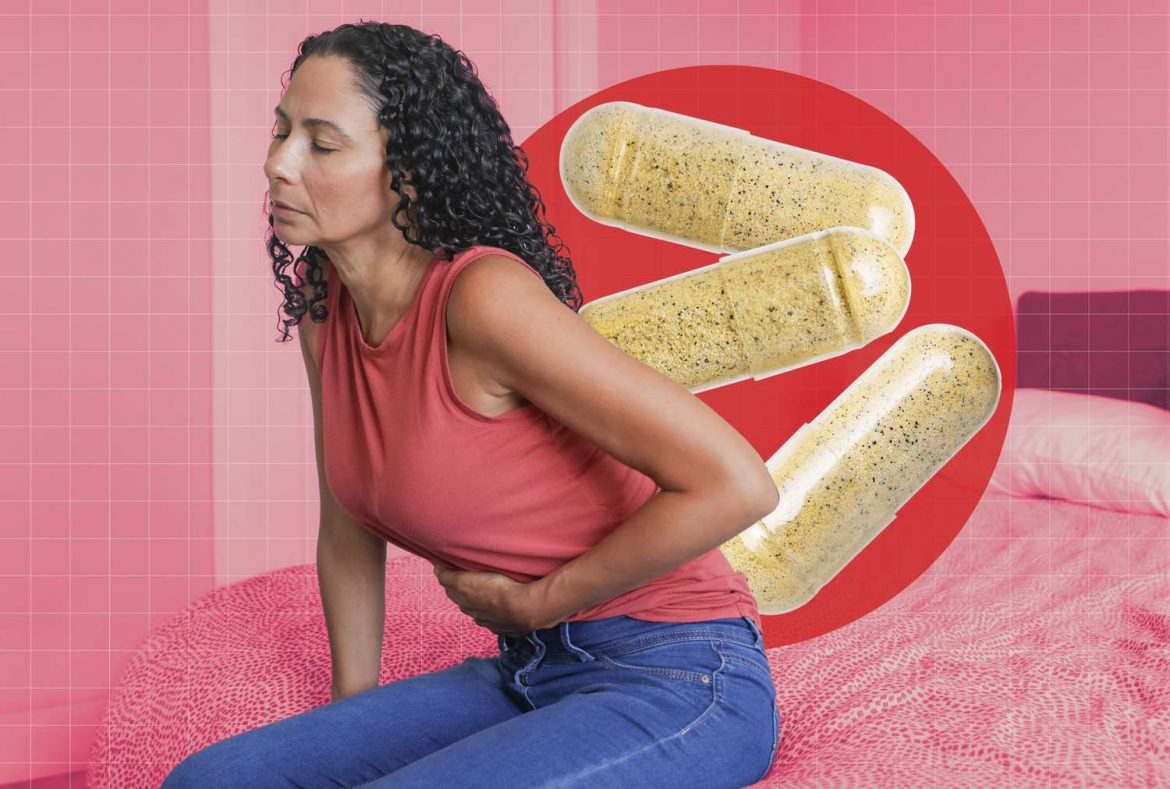:max_bytes(150000):strip_icc():format(jpeg)/TK-Signs-You-Should-Take-a-Fiber-Supplement.REV-c009914cfb8643d1a89557708c891ada.jpg)
- Whole foods are the best source of fiber—supplements should only fill short-term gaps.
- Fiber supplements can ease constipation, bloating, hunger and high cholesterol.
- Start slowly with supplements and get guidance from a health care professional.
Chances are, you’re not consuming enough fiber—most Americans don’t. In fact, research shows that around 97% of men and 90% of women in the United States don’t meet daily fiber recommendations. That’s a concern, since fiber plays a vital role in overall health—supporting digestion and heart health, promoting satiety, and reducing the risk of chronic conditions like diabetes, obesity and certain cancers.
“One of the best things about fiber is that it’s a team player,” says Amanda Sauceda, M.S., RD. “Not only can fiber help your bowels, but it’s also great for blood sugar, heart health and weight management.”
The best way to meet your fiber needs is by eating a variety of fiber-rich foods, including vegetables, fruits, whole grains, legumes and nuts. But in some cases—especially when digestive symptoms crop up—fiber supplements can help fill the gap. But there’s one key thing to remember here: fiber supplements can be a backup for your fiber needs, but they’re not a replacement for fiber-rich foods.
“While there are definitely situations in which fiber supplements can be useful, if you rely entirely on them for your fiber intake, you’re likely missing out on an array of micronutrients and overall dietary diversity,” says Maddie Pasquariello, M.S., RD.
Here are some signs a fiber supplement might be worth considering—and how to use one safely.
1. You’re Constipated for Days on End
If you’re backed up for several days and increasing dietary fiber hasn’t helped, a supplement might offer temporary relief. “If you’re experiencing a prolonged bout of constipation that increased intake from food hasn’t been able to address, adding a fiber supplement for a couple of weeks could be advised,” Pasquariello says. “I wouldn’t rely on it long-term for your fiber needs, though.”
2. You’re Feeling Gassy or Bloated.
Aside from being highly uncomfortable, bloating or abdominal discomfort can sometimes signal constipation. “A lot of the times when people are bloated, they are actually constipated, and the bloating is a byproduct of that,” Sauceda says. “So when the constipation is corrected, the bloating improves.” If fiber from food isn’t cutting it, a supplement may help get things moving.
3. You’re Always Hungry
Fiber helps increase satiety by slowing digestion and adding bulk to meals. If you’re not eating enough fiber, you may find that you feel hungry all the time. Plus, fiber helps regulate blood sugar levels, which can help prevent spikes and crashes that leave you feeling hungry soon after eating. “When we get blood sugar spikes, it can leave you actually feeling hungry and eating unnecessary calories,” Sauceda says.
4. You Have High Cholesterol
“One of the benefits of fiber is that it can help lower cholesterol,” Pasquariello says. High cholesterol—particularly elevated LDL (known as “bad”) cholesterol—can be a sign that your diet might be low in soluble fiber. Soluble fiber is found in foods such as oats, legumes, fruits and vegetables. In the digestive tract, it binds with cholesterol and helps remove it from the body. But if you don’t get enough soluble fiber from your diet, you could miss out on these cholesterol-lowering benefits, and a fiber supplement could help.
How to Choose and Safely Use a Fiber Supplement
If you think a fiber supplement might help, here’s how to choose one that’s right for you.
- Look for a supplement that suits your specific needs. Different types of fiber offer different benefits. “Something with insoluble fiber, for instance, can help stimulate bowel movements and improve constipation, while viscous fiber supplements are helpful for stabilizing blood sugar and reducing cholesterol,” Pasquariello says.
- Check the ingredients. Pasquariello recommends looking for a supplement that’s unflavored, offers a transparent ingredients list and is independently tested.
- Work with a health care provider. Not all fiber supplements are the same, nor are each person’s symptoms. A health care professional can help you find a supplement and dosage that fits your unique needs.
- Start slow. “Many of the symptoms that fiber and fiber supplements work to alleviate—gas, cramping, bloating and digestive discomfort—can actually be exacerbated if you start with too much, too quickly,” Pasquariello says. If you don’t get a lot of fiber in your diet, Sauceda recommends starting with your supplement every other day to give your body time to adjust.
The 6 Best Fiber Supplements, According to Dietitians
Our Expert Take
The best way to meet your daily fiber needs is by eating a varied diet rich in plant-based foods. However, for individuals with limited access to fiber-rich foods or those with specific dietary restrictions, supplements can help bridge the gap. If you’re noticing symptoms like persistent constipation, bloating, high cholesterol or constant hunger, a fiber supplement may be worth discussing with a health care provider.
Just remember: supplements work best as a short-term support—not a long-term solution.
“If you’re going to use a supplement, try to keep it short-term, while you build up fiber intake from food sources,” Pasquariello says.

